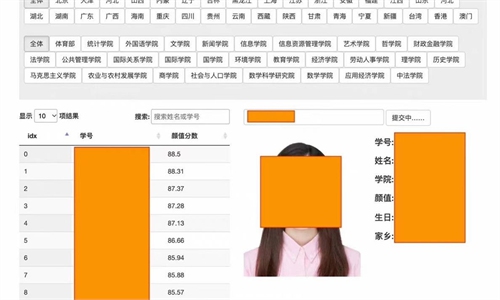
Personal information protection Photo: VCG
Over the past nearly three years, Chinese police have closed a record 36,000 cases and detained 64,000 suspects related to violation of personal information as part of the country's efforts to combat cybercrime and protect citizens' privacy, China's Ministry of Public Security announced on Thursday.
Since a special campaign to regulate the internet was launched in 2020, more than 30 million illegal SIM cards and 300 million illegal internet accounts have been seized, said the ministry.
Data, as a factor of production, has seen increasing value, so the number of cases of criminals targeting citizens' personal information has grown rapidly. The number of these kinds of cases investigated by public security organs increased rapidly in 2021 and 2022, Sun Jinfeng, an official from the public security ministry, said at Thursday's press briefing.
The cases have involved a wide range of industries, including government, healthcare, education, real estate, logistics, and e-commerce. At the same time, a series of illegal and gray industries such as telecom fraud, harassing phone calls, and internet astroturfing have come out, said Sun.
More AI-based criminal cases have also been reported recently. An employee from a company in East China's Fujian Province was cheated out of 4.3 million yuan ($596,377) by fraud suspects using AI to change their faces in April, according to local authorities.
In response to these crimes accomplished through "AI face changing," public security organs launched a special campaign, solving 79 related cases, and arresting 515 criminal suspects, according to the ministry.
With the wide application of face recognition tech and the progress of AI tech, face recognition-related crimes have also occurred. The criminals mainly use photos, especially identity card photos, combining personnel names and ID numbers to complete face recognition verification, said Li Tong, another official from the ministry, at the press briefing.
The public security departments have joined forces with key state laboratories to carry out safety assessments of facial recognition and relevant tech, identify the hidden risk in face recognition verification systems, and prevent and combat this new type of crime, according to Li.
Judging from the cases, the criminals' methods of obtaining citizens' personal information are complex and diverse, such as e-commerce customer service fraud and using hacker tech to steal information. The criminal chain is also linked. From stealing, reselling, promotions, money laundering to processing, criminals have formed a huge "underground big data" industry, which seriously infringes on citizens' personal rights and property safety, and undermines the market and social order, said Sun.
Since 2020, more than 2,300 "moles within industries" such as telecom operators, hospitals, insurance companies, real estate, property, express delivery companies and other sectors have been arrested. Public security organs have been focused on studying new technology or new forms such as ChatGPT, cloud computing, blockchain, and "AI face changing," and cracked down on a number of new-type cases that violate citizens' personal information using AI technology, according to the officials.
Global Times

